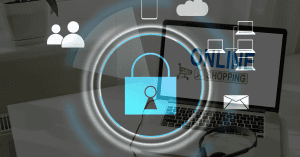Estimated reading time: 8 minutes
Key Takeaways
- Responsible customer data management is the backbone of *trust* in the digital economy.
- Ethical collection, rock-solid governance, and airtight security must work in *concert*.
- Regulations like GDPR & CCPA aren’t the finish line—they’re the **starting point**.
- High-quality data fuels accurate insights, personalisation, and competitive advantage.
- Transparency converts compliance into *loyalty* by showing customers you have nothing to hide.
Table of Contents
Why Responsible Customer Data Management Matters
In a world where *data is currency*, mishandling customer information can bankrupt trust overnight. Ethical and secure practices aren’t simply about avoiding fines; they are about cultivating long-term loyalty, safeguarding reputation, and ensuring that every data-driven decision is **worth its weight in insight**.
- Customer Trust: Secure handling reassures users their privacy is protected.
- Data Accuracy: Clean data powers *hyper-personalised* experiences.
- Regulatory Compliance: Staying on the right side of GDPR, CCPA, and emerging laws.
- Reputation: One breach can undo years of brand equity.
Key Principles of Responsible Data Management
Ethical Data Collection
Only collect data you truly need, request it with *clear consent*, and explain in plain language how it will be used. As one privacy advocate quipped, “If you can’t summarise your data purpose in a tweet, you shouldn’t collect it.”
- Gather *relevant* data tied to a specific outcome.
- Offer opt-in and effortless opt-out paths.
- Review collection practices regularly.
Data Governance
Assign ownership, define processes, and foster cross-departmental collaboration so that *everyone* treats data as a strategic asset rather than raw exhaust.
Data Compliance
Regulations evolve quickly—build flexible systems, consult legal experts, and perform proactive audits to stay ahead of the curve.
Ensuring Data Security
Data Encryption
Encrypt in transit *and* at rest using industry standards like AES-256 and TLS 1.3. Encryption is the digital equivalent of a vault door—if attackers break in, they still can’t read the contents.
Multi-Factor Authentication & Access Controls
Layered authentication and role-based permissions ensure only the right people touch sensitive records.
Data Breach Prevention
Regular penetration tests, vulnerability scans, and ongoing employee training transform *prevention* from slogan to standard practice.
Maintaining Data Quality
Data Accuracy & Quality Controls
Automated validation, standardisation, and monitoring keep databases *polished* and decision-ready.
Data Cleansing
Remove duplicates, outdated entries, and corrupted records to ensure every campaign fires on all cylinders.
Data Audits
Periodic audits illuminate blind spots and spark continual improvement.
Enhancing Customer Data Transparency
Clear privacy notices, accessible preference centres, and timely updates convert opaque policies into open dialogue. As the old saying goes, “Sunlight is the best disinfectant.”
Implementing Effective Data Management Strategies
- Inventory data and conduct privacy impact assessments.
- Draft policies covering collection, storage, security, and deletion.
- Select partners that champion ethical, secure practices.
- Monitor, measure, and iterate continuously.
Regulatory Compliance
Track legislation, train staff, and embed compliance into product design to *future-proof* your operations.
Data Governance Best Practices
- Define roles and responsibilities for every stage of the data lifecycle.
- Encourage data stewardship and cross-functional collaboration.
- Document processes to eliminate silos and promote accountability.
Conclusion
Ethical and secure customer data management is more than a compliance checkbox—it is a strategic imperative that builds trust, reduces risk, and powers sustainable growth. By weaving together ethical collection, rigorous governance, robust security, and unwavering transparency, organisations can transform data into a **competitive advantage** while honouring customer privacy.
FAQ
What is responsible customer data management?
It is the ethical, secure, and compliant handling of customer information from collection through deletion, ensuring privacy, accuracy, and transparency at every step.
Why is data transparency important?
Transparency builds trust by showing customers exactly what data you collect, why you collect it, and how they can control or delete it.
How often should we conduct data audits?
Perform at least annual audits, with more frequent checks after major system changes or regulatory updates.
Does encryption alone make data secure?
Encryption is vital but not sufficient; pair it with MFA, access controls, and ongoing monitoring for comprehensive protection.
What role does data governance play in compliance?
Strong governance assigns clear ownership, enforces policies, and provides the documentation regulators require, making compliance far easier to demonstrate.







